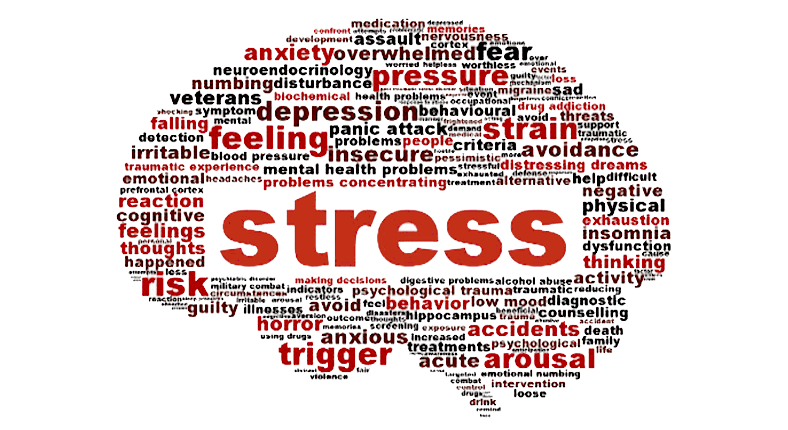Stress in infancy alters body's organs: study
Wed 30 May 2018, 13:34:11

LONDON: Suffering from emotional stress during infancy can cause significant and far-reaching effects on the organs of the body, leading to diseases later in life.
Psychological stress in infancy dramatically changes the amount of an important class of proteins, called GABAA receptors, which in turn may alter the workings of the heart, lungs, kidneys and bladder, researchers said.
It was already known that changes in the amounts of GABAA receptors causes some brain disorders, but researchers at the University of Portsmouth in the UK are the first to show that stress can also alter their expression in other organs.
Researchers studied the way GABAA receptors behave in secondary organs in mice which had first been exposed to stress.The study, published in the journal Frontiers in Molecular Neuroscience, provides hope that drugs targeting these receptors can now be developed to treat a range of medical conditions, from hypertension to asthma, and from diabetes to inflammatory bowel diseases.
"GABAA receptors were known to control brain activity and served as important targets for many drugs used in modern medicine to treat brain disorders, such as epilepsy, anxiety as well as inducing surgical anaesthesia," said Jerome Swinny, from University of Portsmouth.
"We were surprised to find these proteins were also found to be expressed so widely beyond the brain,"
Swinny said.
Swinny said.
"The dramatic stress-induced changes in the amounts of GABAA receptor compared to what one normally finds is intriguing. It will alter organ function and, we suggest, will contribute to diseases of the organs," he said.
"It has long been known that childhood adversity, such as neglect or abuse, confers a vulnerability to developing a range of medical conditions later in life, including mental illnesses such as anxiety, and cardiovascular or metabolic disorders," Swinny said.
"However, precisely how such emotional challenges impact on the normal functioning of different organs within our body remains elusive, which stops the development of effective drug therapies," he said.
The human central nervous system is designed to withstand stress, he said, and a certain amount of stress allows humans to adapt and survive in an ever changing environment.
The problems begin when exposure to stress is constant.
"A sustained threat is detrimental to our survival. The nervous system of an infant is not mature enough to be able to cope with prolonged exposure to the chemicals which mediate our stress response," Swinny said.
"As a result, such experiences often confer a vulnerability to changes to the normal development of their body and mind," he said.
No Comments For This Post, Be first to write a Comment.
Most viewed from Health
AIMIM News
Latest Urdu News
Most Viewed
May 26, 2020
Do you think Canada-India relations will improve under New PM Mark Carney?
Latest Videos View All
Like Us
Home
About Us
Advertise With Us
All Polls
Epaper Archives
Privacy Policy
Contact Us
Download Etemaad App
© 2025 Etemaad Daily News, All Rights Reserved.






























